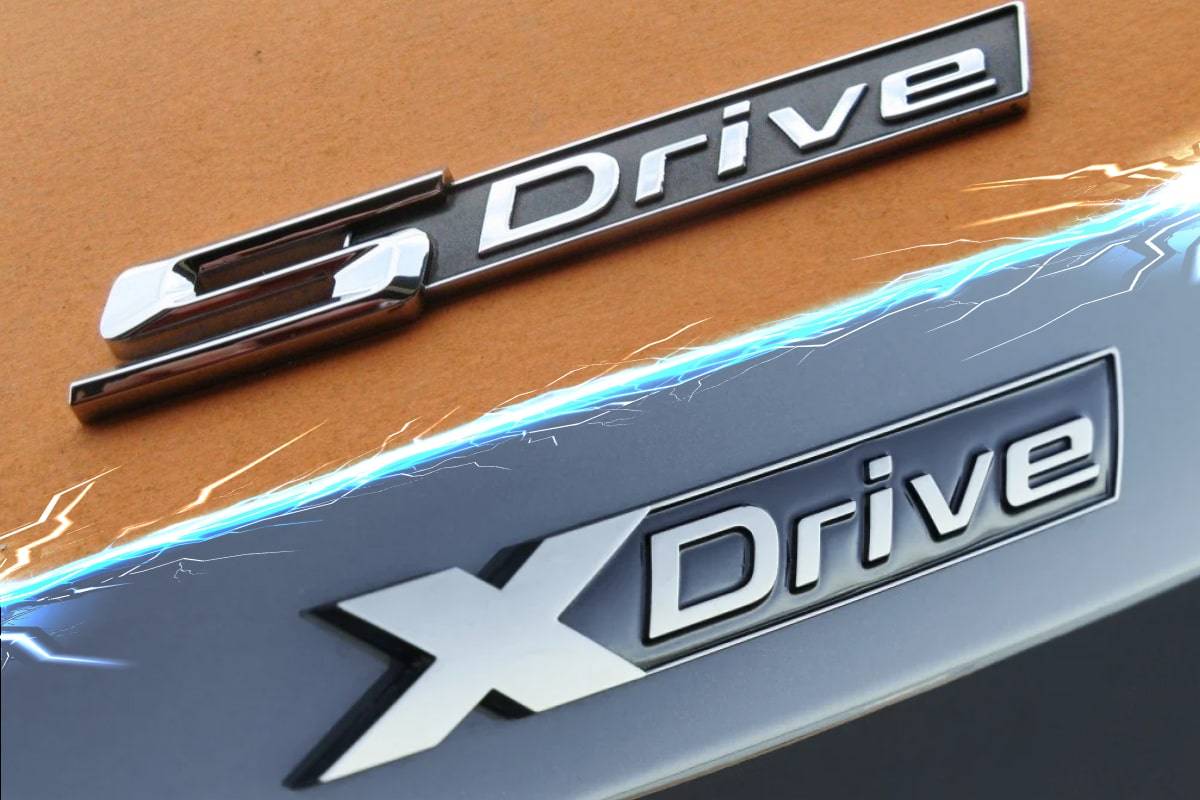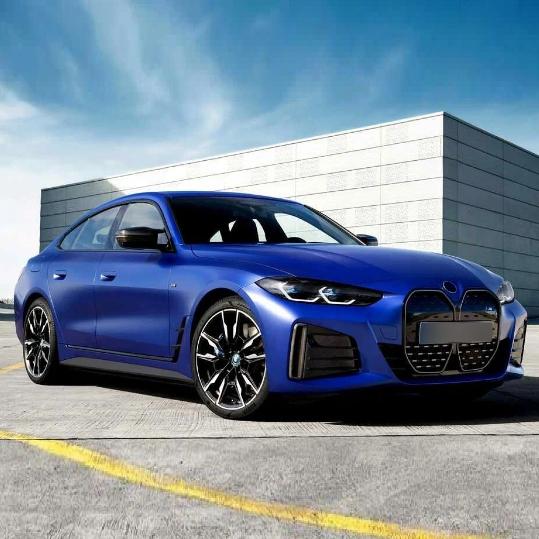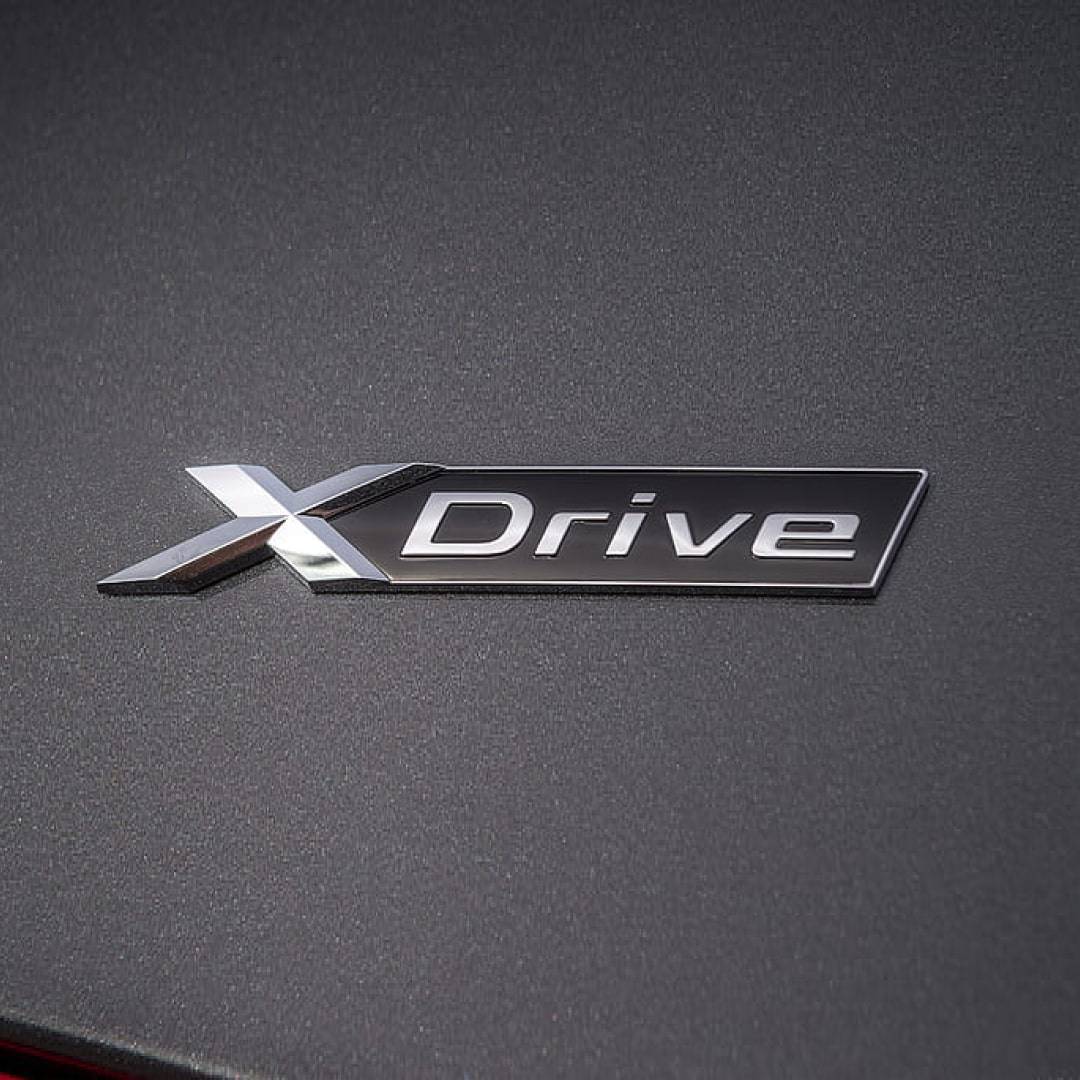[[post.title]]
Sep 12, 2024

BMW is known as the ultimate driving machine, right? Well, what actually drives the ultimate driving machine? When you put your foot down, your pedal sends a signal to your car to open the throttle, dump in more fuel, and crank those cylinders.
In a few more steps, that power will eventually get to your wheels, and depending on what you’re driving, that’s going to happen in one of three ways: front-wheel drive, rear-wheel drive (BMW sDrive), or all-wheel drive (BMW xDrive).
Coming up, you’ll learn:
Enjoy the reading!
First, let’s get some acronyms out of the way so you can know what’s up. I won’t get into too much detail, but the basics are key!
IMPORTANT NOTE: AWD and 4WD (four-wheel drive) are not entirely the same thing. AWD insinuates that all four wheels are always getting some type of power. 4WD is generally something you activate when you want to. Think about off-roading. Normally, you’ll keep your vehicle in its normal driving mode (which is usually two-wheel drive with the rear wheels), and if you need more help getting up a mountain (or out of snow or mud), you’ll throw on 4WD.
 BMW does have some different names for these systems and we’ll get into that in the next section, but for now, let’s take a quick look at which BMWs have what. Of course, there are too many to list each and every one of them, but let’s go over a few key ones.
BMW does have some different names for these systems and we’ll get into that in the next section, but for now, let’s take a quick look at which BMWs have what. Of course, there are too many to list each and every one of them, but let’s go over a few key ones.
In short, most BMWs are going to be RWD. It’s a tried and true system, and BMW has made it work very well over the years. Most M cars are also RWD. While AWD may give you some more traction, tire and suspension technology has come a very long way, allowing the more “fun” RWD to be mostly superior in every way. Some of the current top-tier BMWs let you choose between RWD and AWD – but that’s just available in cars like BMW M3.
AWD is one of the next most popular options for BMWs. This is optional in many models and standard in some. Currently, there are not many models that don’t offer some type of BMW 4x4. The list includes:
FWD is pretty darn rare for BMWs, as it only started happening en masse recently. It was never really popular for performance cars. While BMW sometimes focuses on luxury or MPGs first, they generally always want to make sure something at least moderately fun happens when you put your foot down.
Currently, there are only a few FWD cars masquerading around as BMWs: the 1 Series, X1, X2, and 2 Series Gran Coupe. Of course, if you expand this to BMW Group’s other brands, you’ll find some MINI models on this list as well.
 BMW always has to be just a little different, and they keep this true with how they name their drivetrains. BMW sDrive is simply what they call their two wheel drive vehicles. This can be either FWD or RWD. If only two wheels are getting power, it has sDrive.
BMW always has to be just a little different, and they keep this true with how they name their drivetrains. BMW sDrive is simply what they call their two wheel drive vehicles. This can be either FWD or RWD. If only two wheels are getting power, it has sDrive.
BMW doesn’t simply send power to those two wheels and call it a day. sDrive, which started for BMW in 2009 includes torque vectoring technology which allows better control over how your wheels push your (or sometimes pull) BMW for the best, or should I say “ultimate” driving experience.
xDrive came out in 2003, and is BMW’s version of AWD. Much like sDrive going above and beyond with how the wheels get power, xDrive works with your BMW’s Dynamic Stability Control to transfer power side to side as well.
With great electronics can come great electronic problems. Everything in a BMW is controlled by some module and tons of electronic brainpower. Things break. One common problem would be the dreaded “4x4” light. So, what does the 4x4 light mean on the dash in your BMW?
In short, it is telling you there is something wrong with your xDrive system. To find out exactly what the issue is, you’re going to want to get a code reader to find out what the code is. There is a chance that if it came on after a battery swap or something like that, you can get it to go away by simply turning your steering wheel all the way to the left, then all the way to the right, and then back to center, all while on flat ground.
Alternatively, if it doesn’t work, you could try out our Error diagnostic and Error message removal remote iDrive coding options. We’ll perform a BMW diagnostic for you, verify what errors need taking care of, and—when applicable—remove the trivial error messages from your dashboard.
For a more expansive list with explanations of dashboard lights on your BMW, check out our article BMW Dash Lights Explained – Types & Meaning.
There are far too many problems to go into, and they are going to be impossible to diagnose over this article, so it’s always best to take your BMW to a certified mechanic or BMW dealer if you ever suspect an issue with your sDrive or xDrive system.
Now that you’re practically a pro with BMW drivetrain nomenclature, it’s time to throw one more at you: BMW eDrive! First off, this is only going to be found on BMW i models and plug-in hybrids. This is not for you internal combustion lovers.
There are three main parts to BMW’s eDrive system: the high voltage lithium-ion battery, an electric motor, and an intelligent energy management system. eDrive technology pairs the use of the battery and internal combustion engine in the most efficient way possible allowing for you to travel faster and longer just using the battery system.
When the battery is engaged, there are no emissions that come from the BMW. This is the perfect option if you want to get the most miles (or kilometers) per gallon and save the planet at the same time!
To sum it all up, here’s a quick guide on terms:
Knowing these terms should give you a better understanding about what to look for in your next BMW, or help you know more about that one that you already have. There are tons of vehicle and BMW acronyms and terms floating around out there, and those might show up in our next article!
Customer Reviews
Comments
Rate the product
This email is already registered.
Please Log In to continue.
Customer Reviews
Comments
Rate the product
This email is already registered.
Please Log In to continue.
[[comment.name]]
[[comment.text|raw]]
BimmerTech
Newsletter
[[comment.name]]
[[comment.text|raw]]
BimmerTech